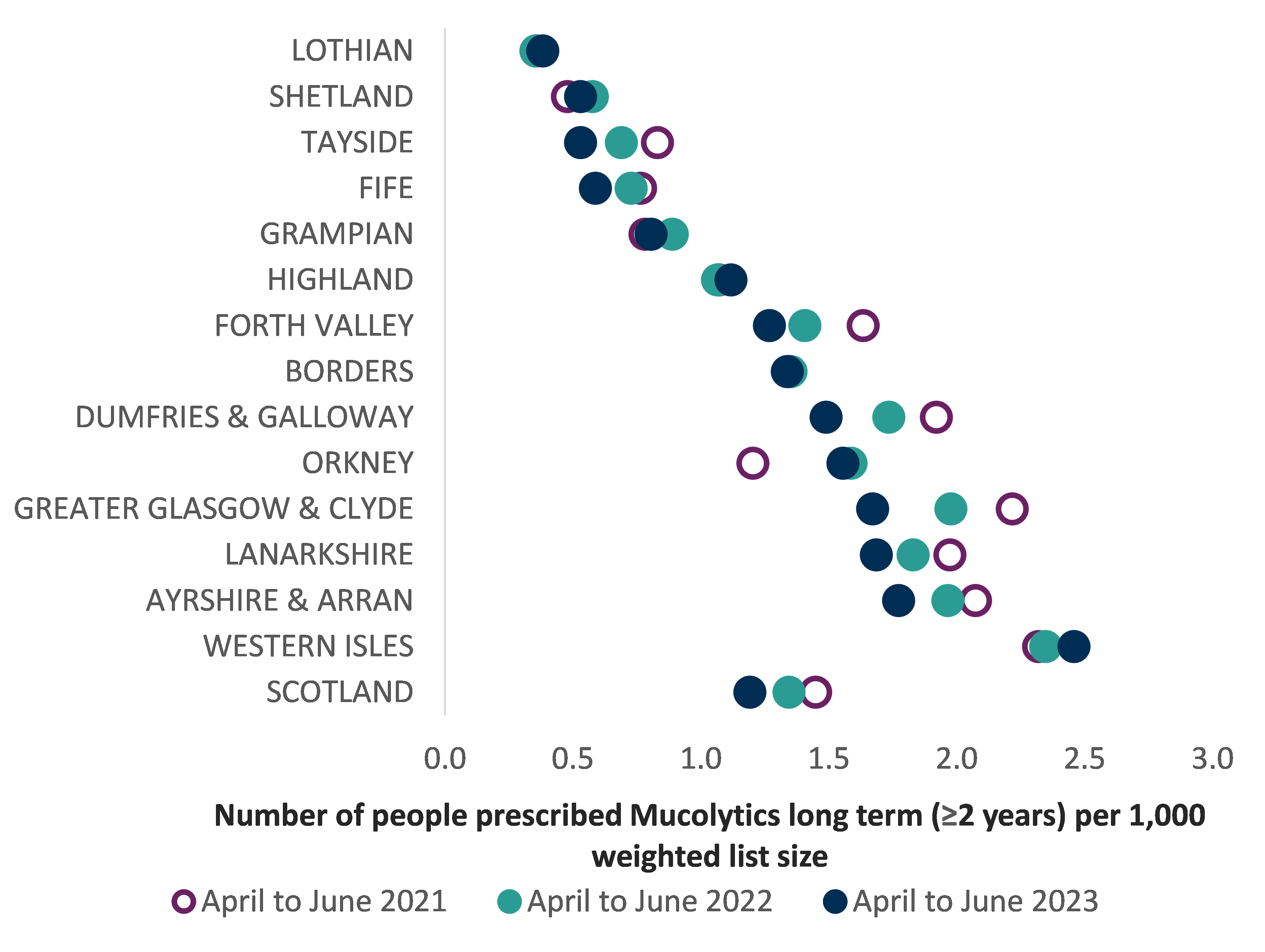Prescribing of mucolytics
Mucolytic therapy should be reviewed after a four-week trial and stopped if symptoms of cough and sputum production have not improved.
- Mucolytics are taken orally to assist patients coughing up sputum, as it breaks down the protein bonds, ‘loosening’ the mucus.
- A recent Cochrane review found that use of mucolytics may reduce the likelihood of an acute exacerbation, reduced days of disability per month and possibly reduced hospital admissions with minimal adverse effects. There is doubt in the confidence of early trials reviewed in the results, due to possible risk of bias in selection or publication, therefore the benefits of treatment may not be as great as suggested.54
- Mucolytics do not appear to affect health related quality of life or improve lung function.
- NICE has previously recommended that mucolytics should not be routinely prescribed to prevent exacerbations for patients with stable COPD. Mucolytic drug therapy may be considered for people with a chronic cough productive of sputum.46
- Mucolytic therapy should be reviewed after a four-week trial and stopped if symptoms of cough and sputum production have not improved.
- Regular review of mucolytic therapy should be undertaken during the annual review and may be stopped if there is no productive cough or if symptoms have not improved with use.47 This review could be completed in primary or secondary care.
The chart below shows the wide variation and increasing use of mucolytics between NHS boards over the last three years.
Number of people prescribed mucolytics long term (≥2 years) per 1,000 weighted list size

The numerical data for NTI graphs can also be viewed here.
The most up to date national therapeutic indicator data is available here.